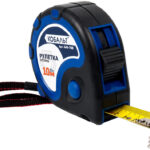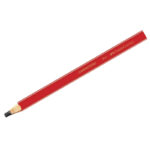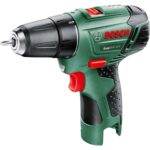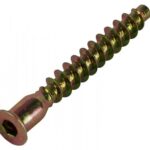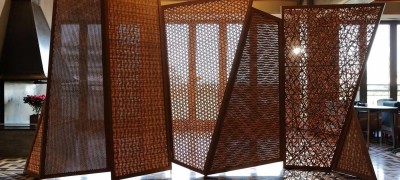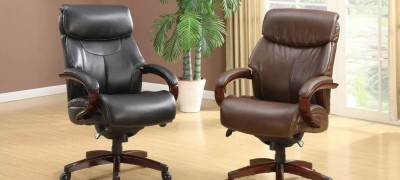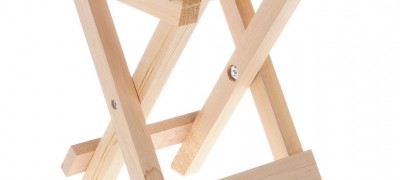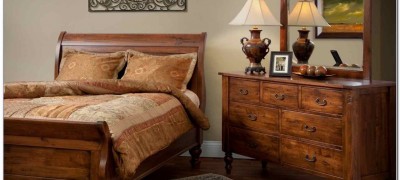Sizes of confirmations for furniture
Euro screws for furniture or Euro screws with a hidden head are known since the end of the twentieth century and are still used today and are popular among consumers.
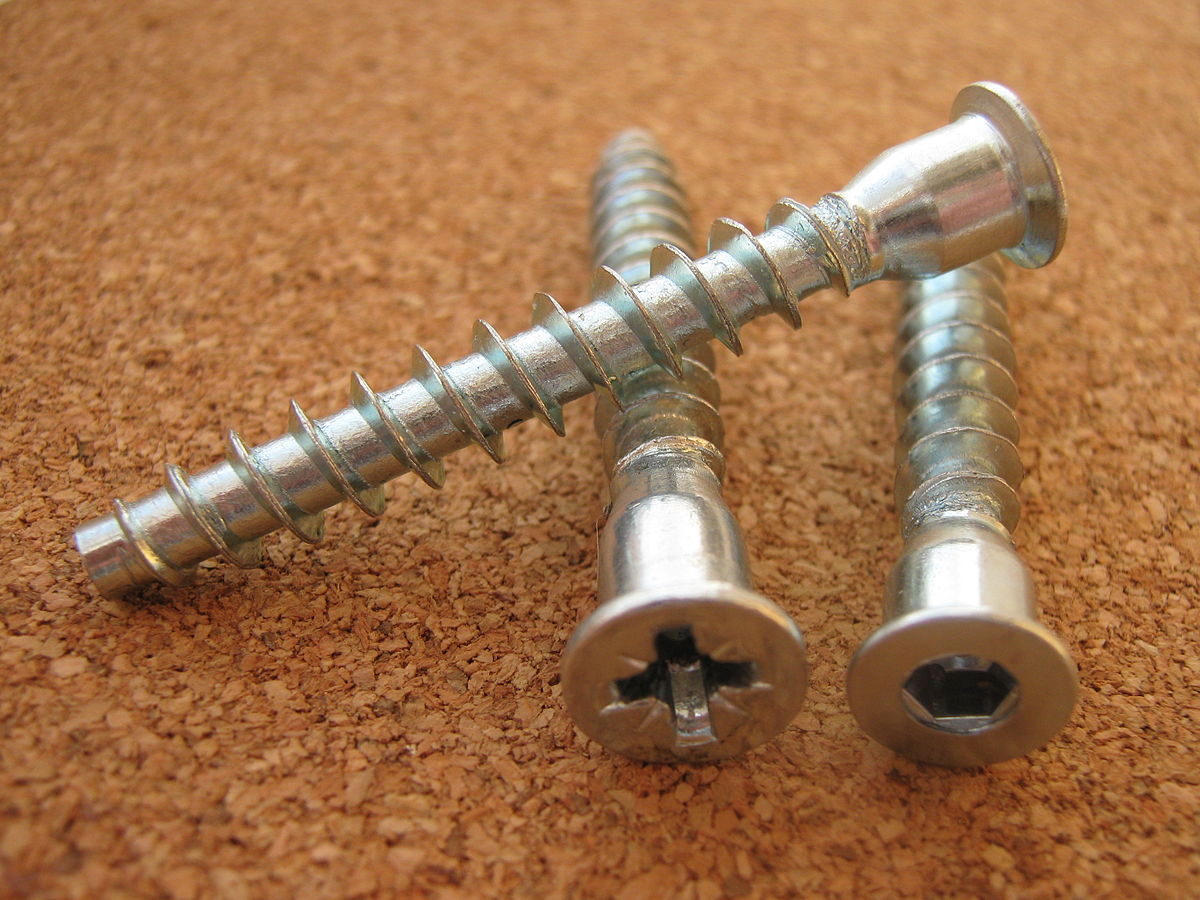
Most people, at least once in their lives, have been installing furniture at home, or have observed this process. No assembly is complete without the described screw, since it has good fastening qualities. The article will be devoted to fairly common products, the features of their use.
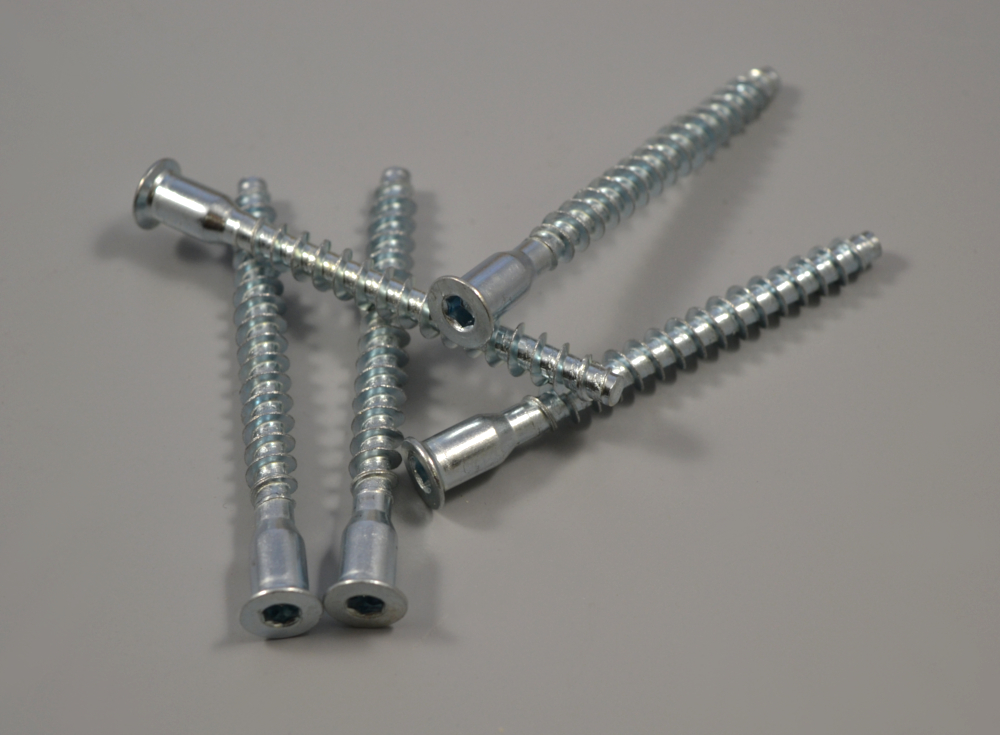
Drill for furniture Euro screw
This fastening element has a peculiar design, therefore, for comfortable work with it, use a drill for a furniture Euro screw. As for the dimensions of such a tool, they are standardized. The products of various companies differ only by the brand (quality), and the diameter of the drill for furniture Euro screws is determined by the sizes of the most demanded confirmations.
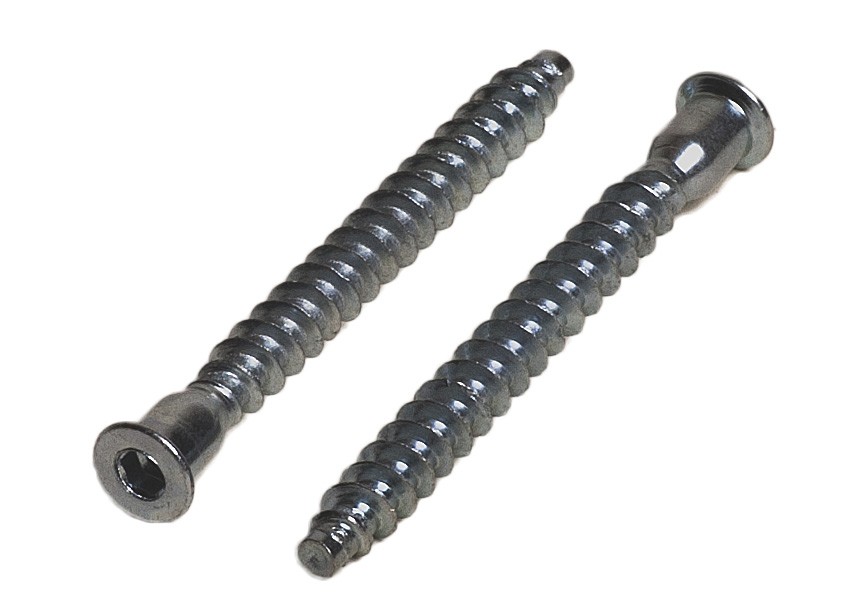
To work with screws, different heads are used (cross or hex). Small screws (five millimeters) are tightened with a three millimeter key. Accordingly, for large sizes (seven mm), a four mm tool is suitable.
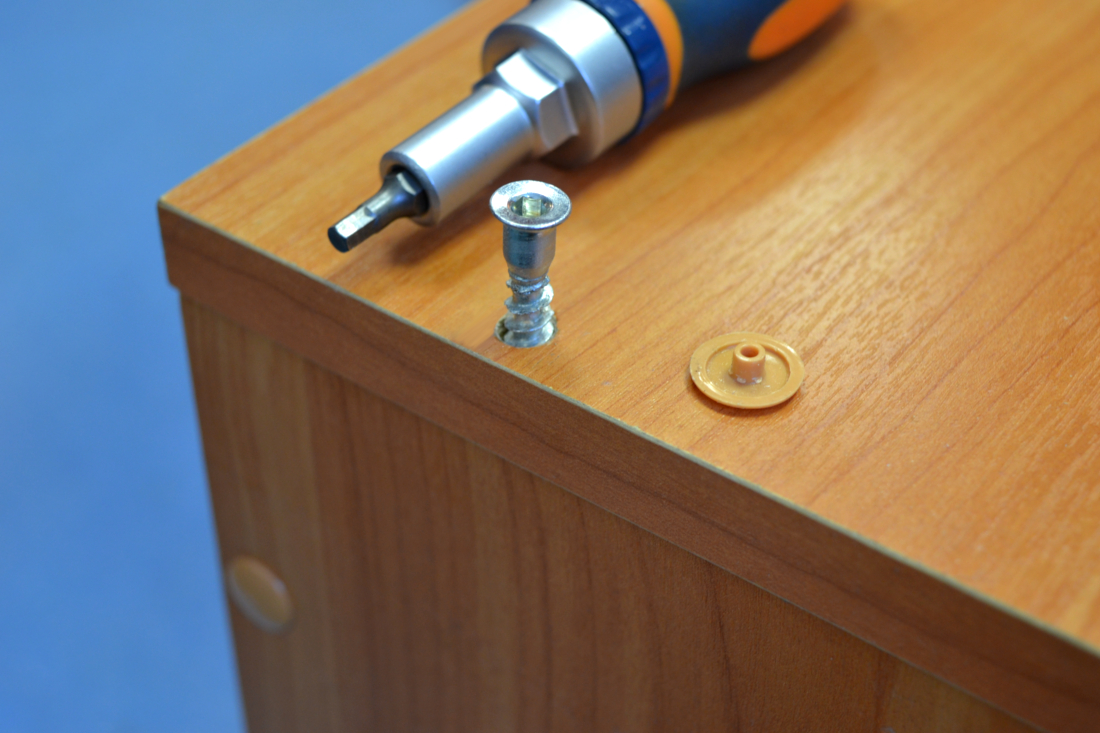
The most popular Euro screw is 6.4 mm. A drill is suitable for him - 4.5 (5) millimeters. Also in demand are tools with a diameter of 7 (or 4.5) millimeters - a confirmation drill.
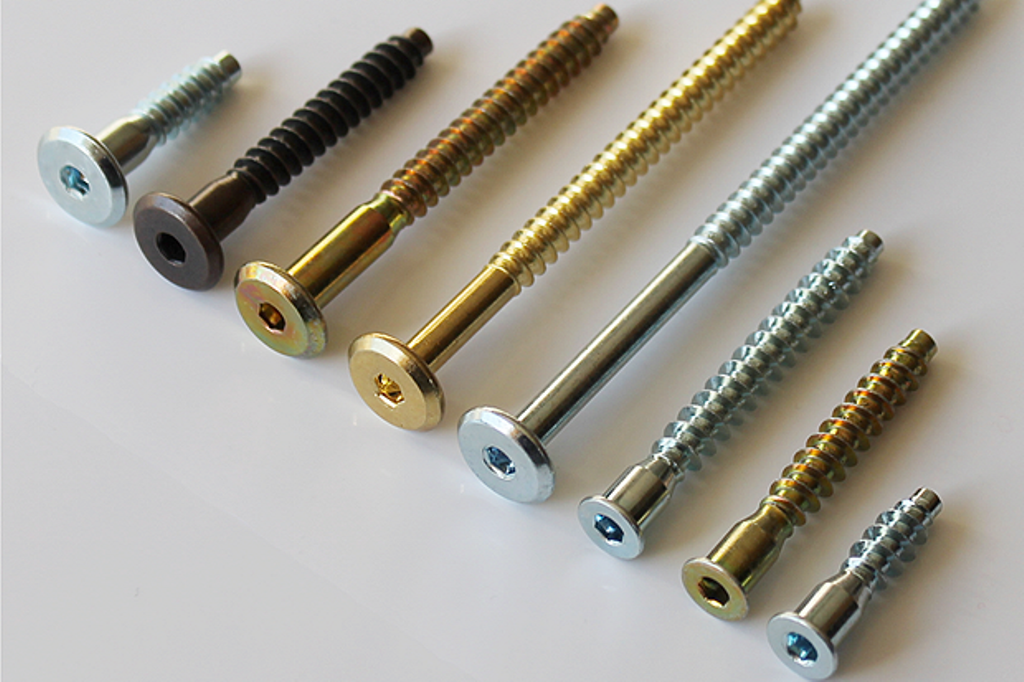
The drill design consists of the following elements:
- the part directed under the screw thread;
- element for a smooth segment of the described screw;
- an area intended for processing holes.
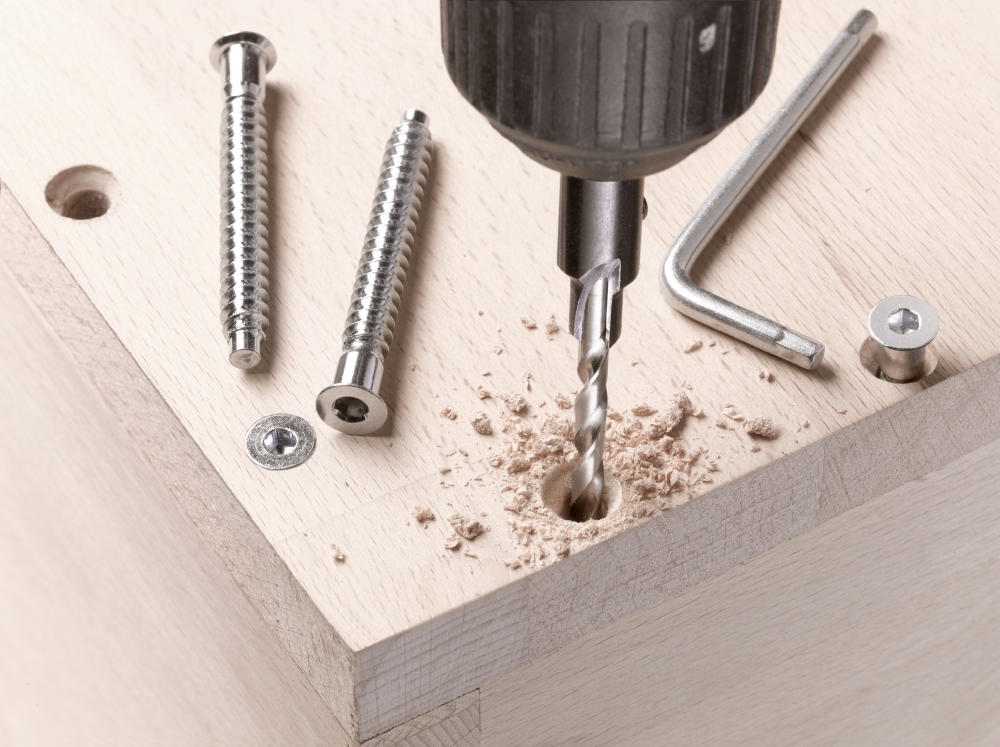
Important. The most popular European classification: HSS 7 × 70 and further -… 7 × 50, 6.3 × 50, 5 × 50 (parts made of tool steel).
Features and benefits of the fastener
The confirmat shape resembles an ordinary screw with a conical (thickened) part under the head. An obligatory element of their structure is a protective coating (brass, zinc or nickel). The screws are made of carbon steel. This specificity of their structure makes it possible for products to have flexible properties.
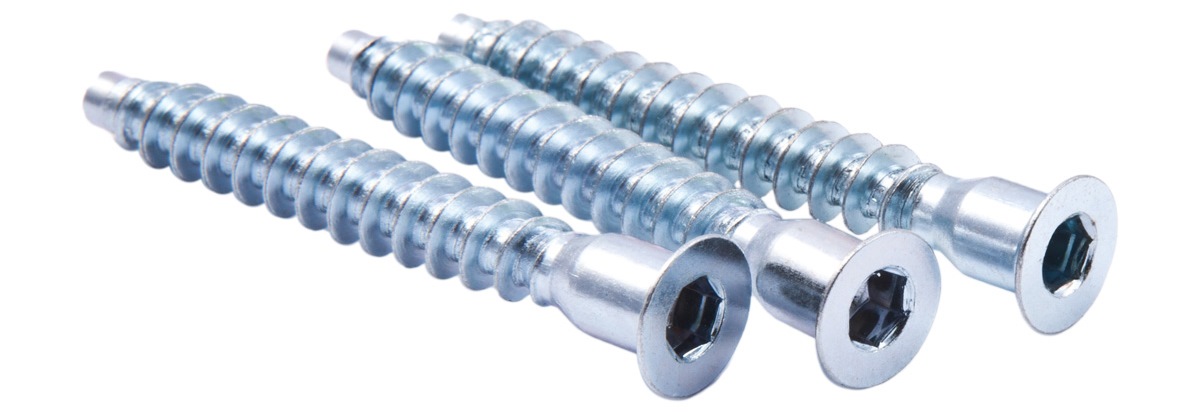
The size of the furniture confirmations can be as follows:
- 5x40 and 5x50;
- 6x50, 6.3 by 40 (by 50);
- 7x40, 7x50, 7x70, etc.
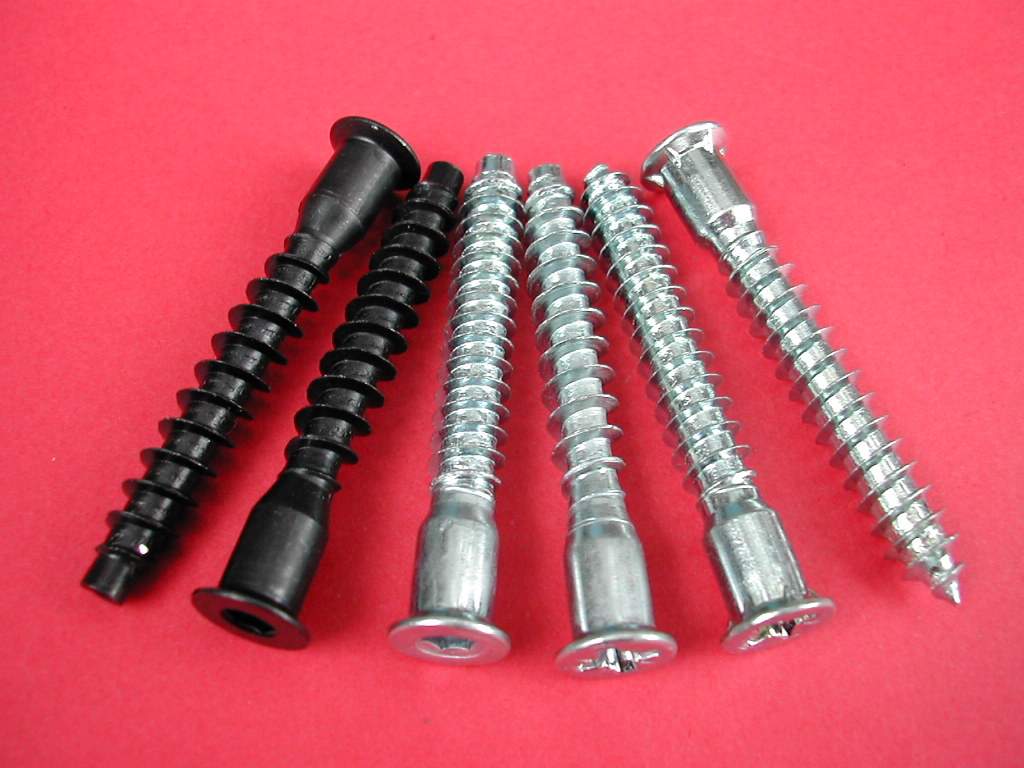
The advantages of the products are the following:
- Functionality. Perfectly worked out the thread for step-by-step cutting.
- Plastic. The Euro screw has the ability to bend, but does not break like ordinary screws.It is easy to install it again if it was installed incorrectly the first time.
- Many tools can be used when working with fasteners: drill, wrench, screwdrivers, etc.
- Reliability of structures mounted with these parts. Fastening fittings and frame materials.
- Widely used for the following materials: wood, plywood, particle board, fiberboard, MDF, etc.
- The ability to use screw caps, which completely hides the view of the metal from the eyes. This gives the furniture an aesthetic appearance.
- Ease of installation. Working with these parts significantly speeds up the work.
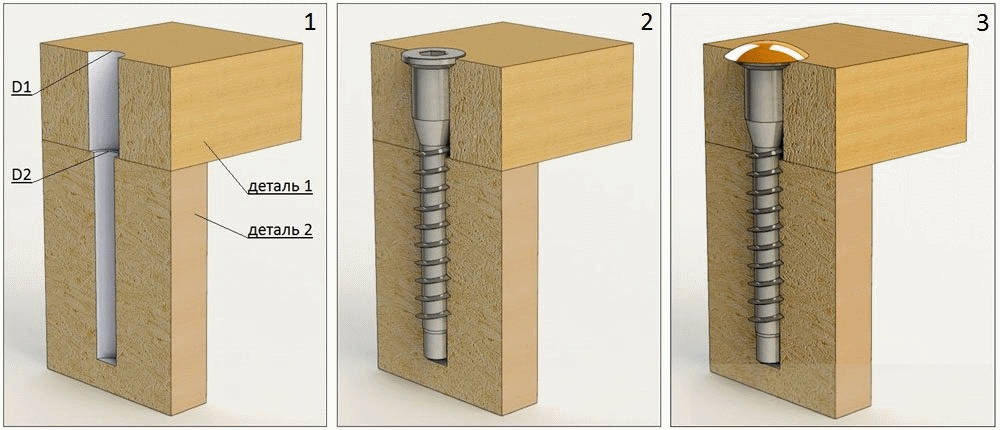
Typically, the simplicity of design also makes this product affordable for most consumers.
Scope of application
The carpenter, and more specifically the work with furniture, is the main sphere of using the products. But in woodwork, there are also several vectors where it is possible to apply products:
- furniture industry (both in large production volumes and small workshop assemblies);
- the production of various items by folk craftsmen;
- repair of various items;
- installation of wood products (and other materials), etc.
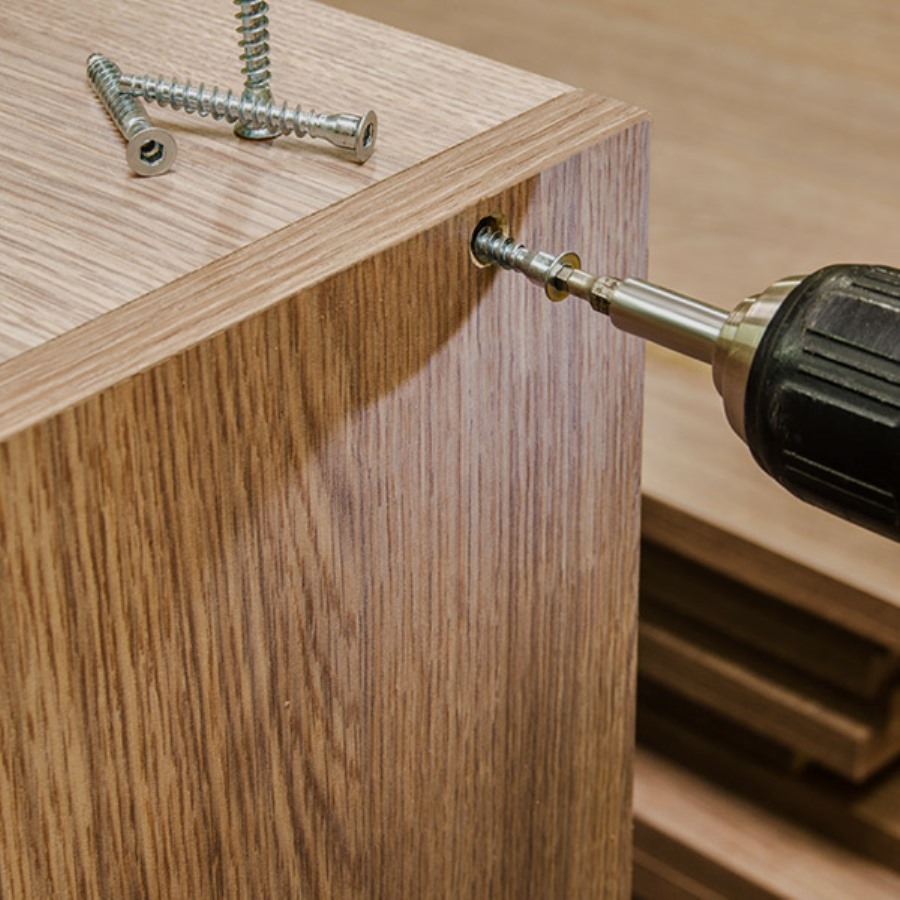
Note. The products have been in use for over twenty years, and remain at the first stages of popularity in the market. This indicates the success of this project.
Drilling holes for confirmations
Such connecting elements are used in various fields of activity, as they are compatible with many working materials. But before screwing them in, it is necessary to drill holes of a certain diameter.
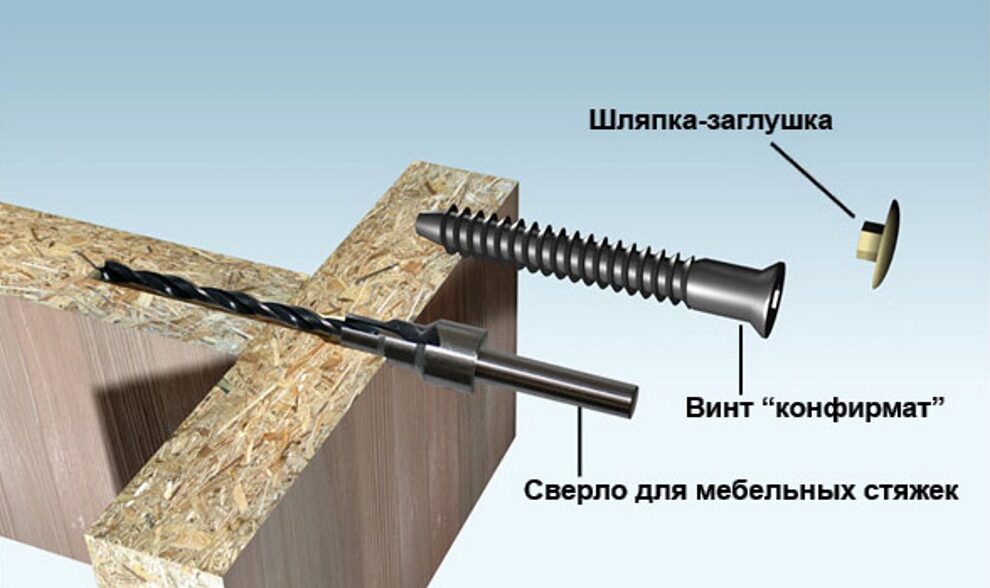
In practice, the drilling itself takes place as follows: an opening is made in the thickness of one product, at the end of another workpiece, and subsequently they are fastened. The diameter of the holes has stepped transitions - this is due to the design of the fasteners. Since there is a thickened cone under the hat, the hole size should increase there, and decrease along the thread itself.
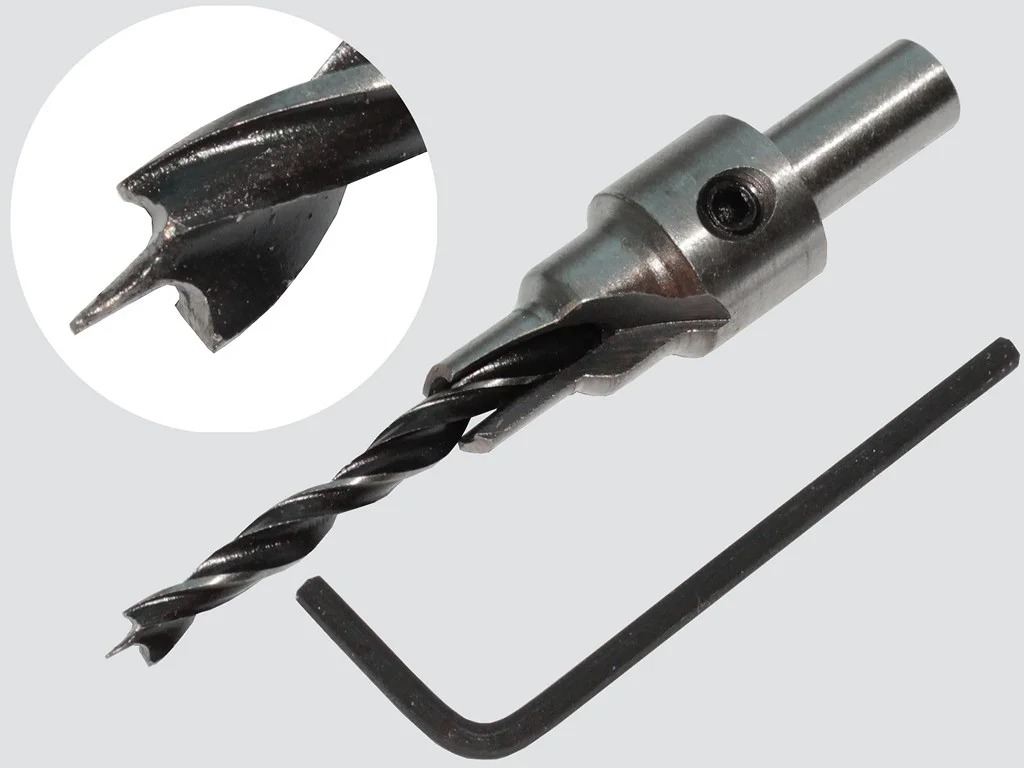
The work process can be divided into several ways:
- Three stages. An opening is made in two objects for a certain length of the Euroscrew. (when drilling, the diameter with a thread is not taken into account, only hollow elements, the curls themselves punch their way in the product). Second drilling for the size of the cone under the head. Working with a countersink to deepen the head.
- Work with a cutter (confirmation drill). With this method, there is no need to work in several stages, the design of the equipment itself is of a step type. It is enough to go through the drill once. Such work is accurate, there will be no deviations to the side. This is one of the common methods for installing screws.
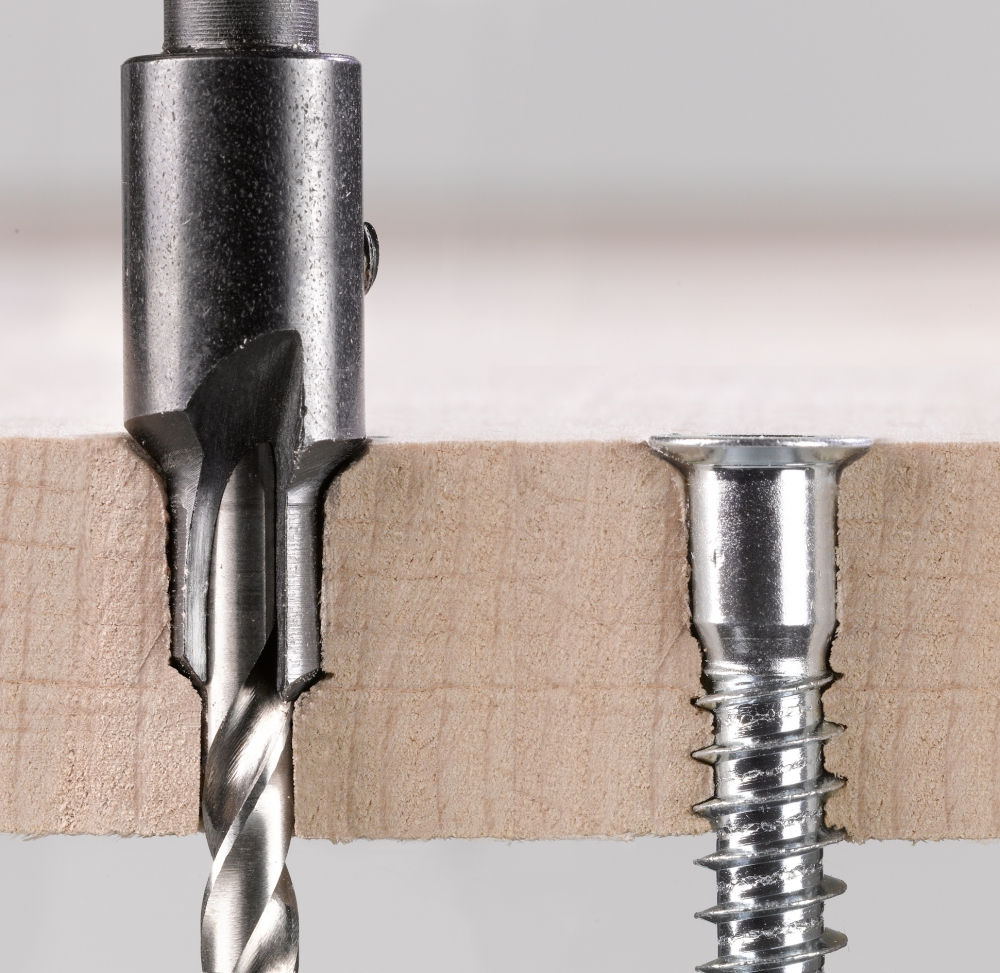
Additional Information. Any displacement during operation carries a risk of its safety and destruction of the sample. Clamps must be used when drilling. A well-known fixation hardware is the angle clamp.
Required tool
If a person decided to start working with these clamps, you need to stock up on the following tools:
- roulette;
- pencil;
- awl;
- bit;
- screwdriver, various drills;
- and of course, Euro screws.
Hole depth and width
The most popular product with a size of 6.4 (diameter with a thread, and without it - 4.4 mm) is fifty. Conclusion: the normal depth with such a screw is fifty millimeters, and the width is four and a half or five.
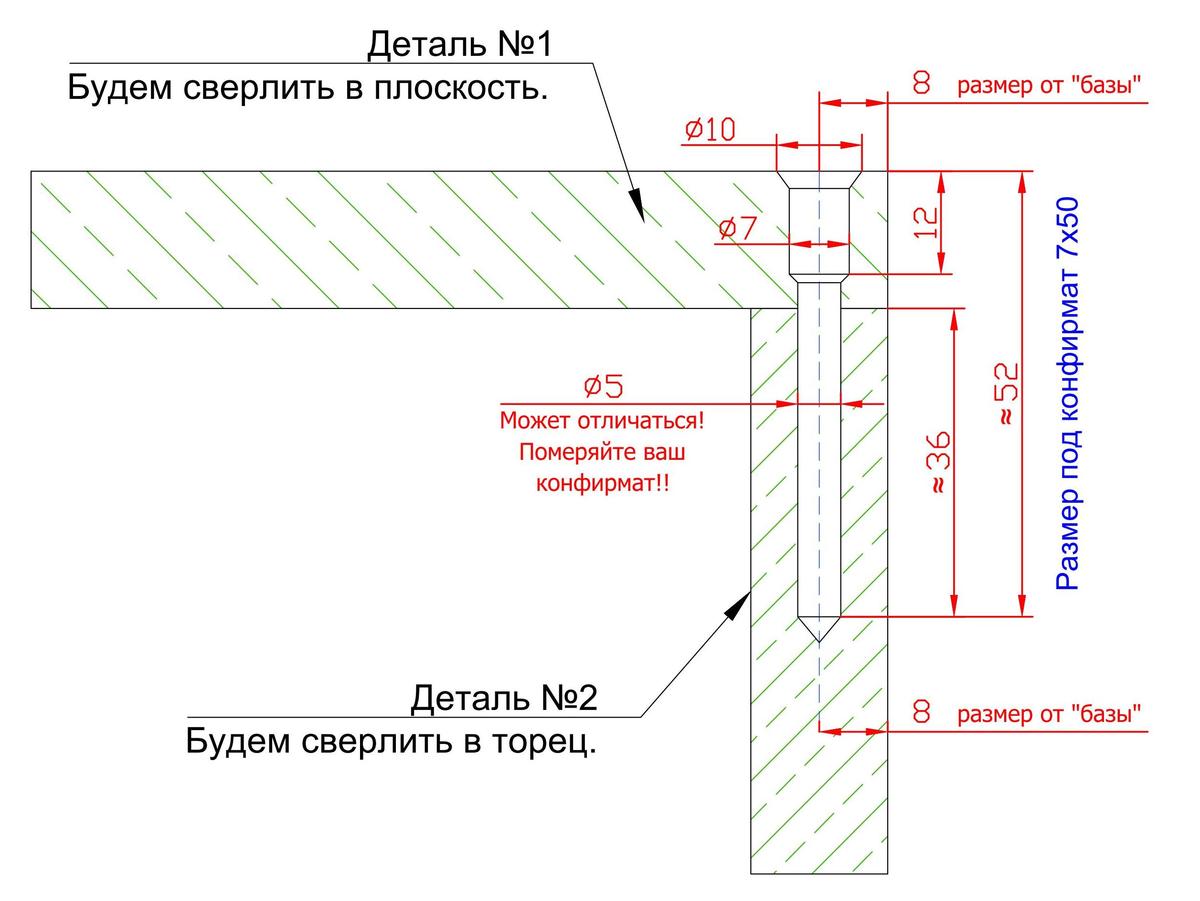
If you make it a little larger in size, the fasteners will not cope well with fixation, if the hole is narrowed, the part can split the sample.
Important.It is best to use a confirmation drill - 4.5 mm. (universal products).
Drilling location marking
The preparatory stage is no less important than the work itself. First, you need to correctly mark the surface where drilling will be made. Two measurements are made on the end object: the height (varies from five to ten centimeters), and the measurement from the edge of the workpiece (about eight mm).
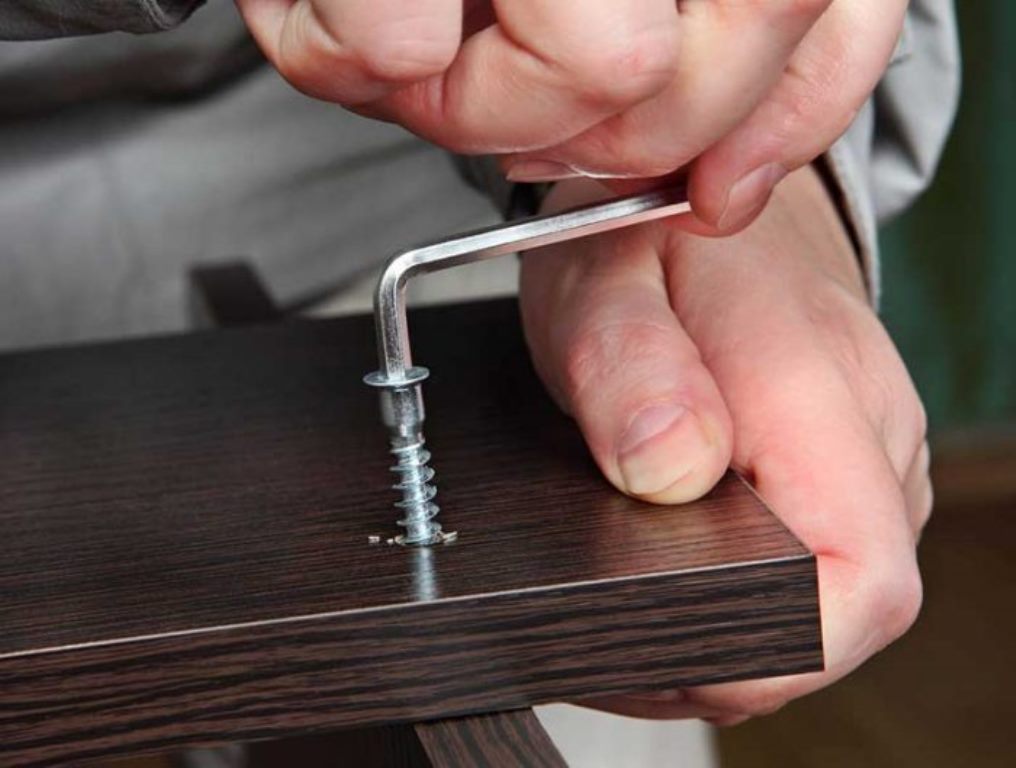
On another object on the facade, a point of contact is drawn. The measurements are virtually identical to the first option.
Any craftsman must clearly mark the surface of the products - this will make it possible to avoid inconsistencies in parts during assembly.
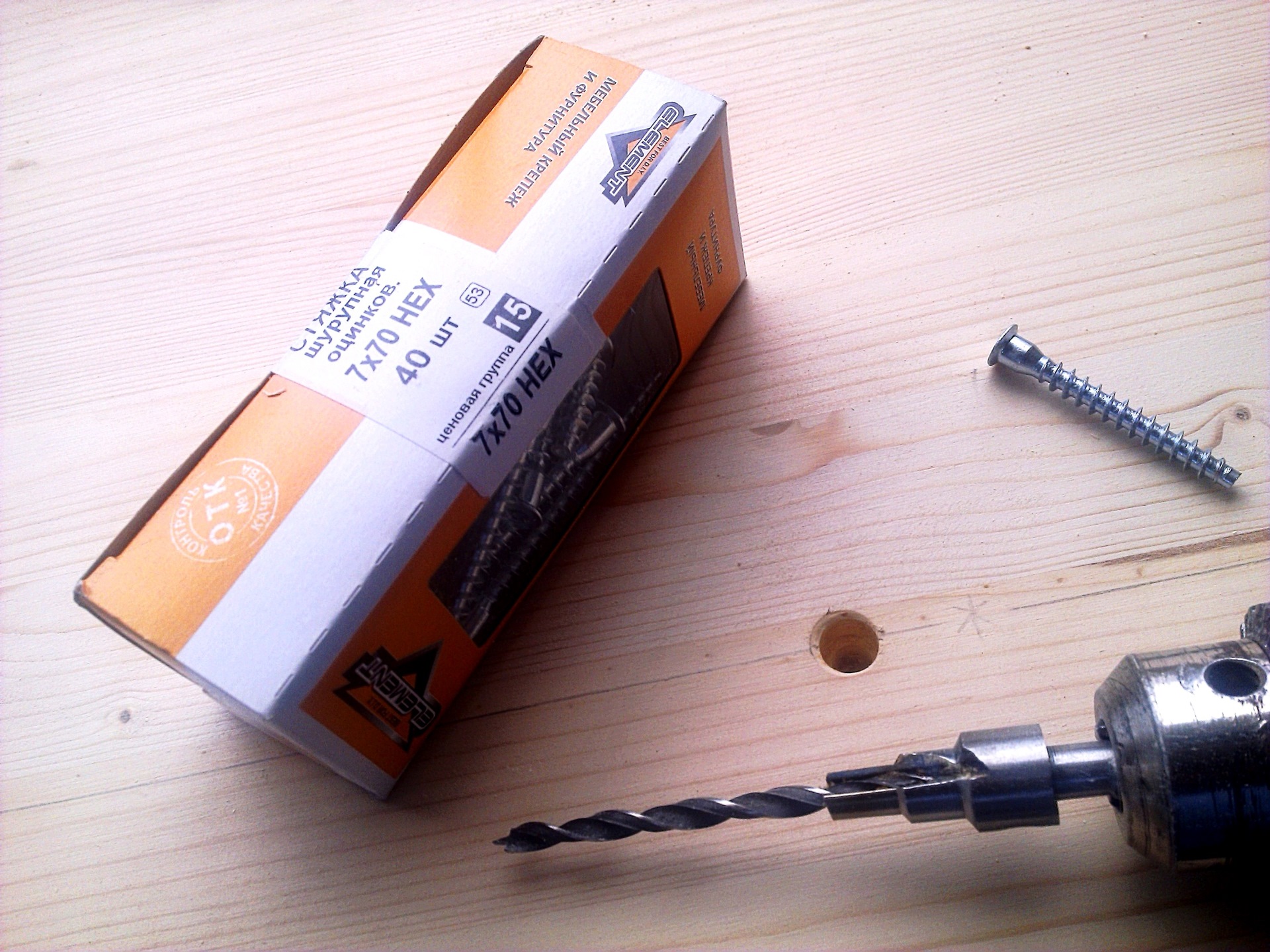
Note. In practice, craftsmen recommend making a through opening in the first object, and using the drill itself to mark a point in the second (by attaching two details).
Drilling into the part
The first thing to do is make a hole eight millimeters (from the edge). Place a piece of an old board under the sample. Then with a drill, holding the drill perpendicular to the ground, we make a through opening.
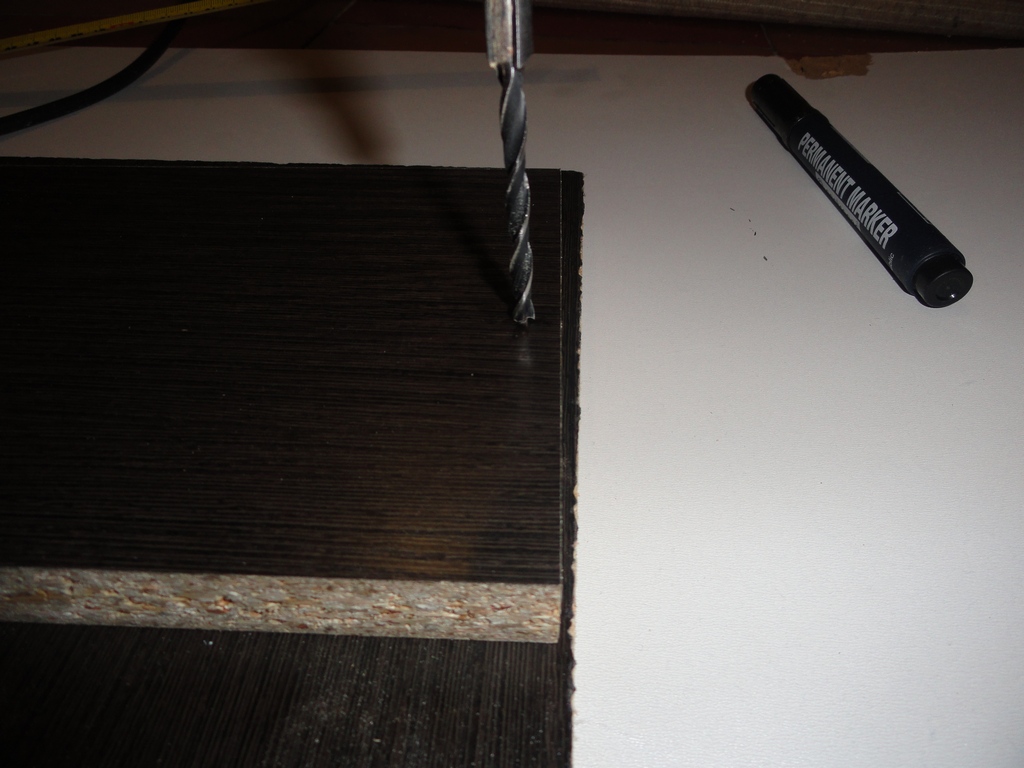
Drilling at the end of the part
Face drilling implies that the drill must be positioned perpendicular to the end of the object. This will fix the equipment properly and the sample will not be damaged. Try to work in several passes, while knocking out the shavings.
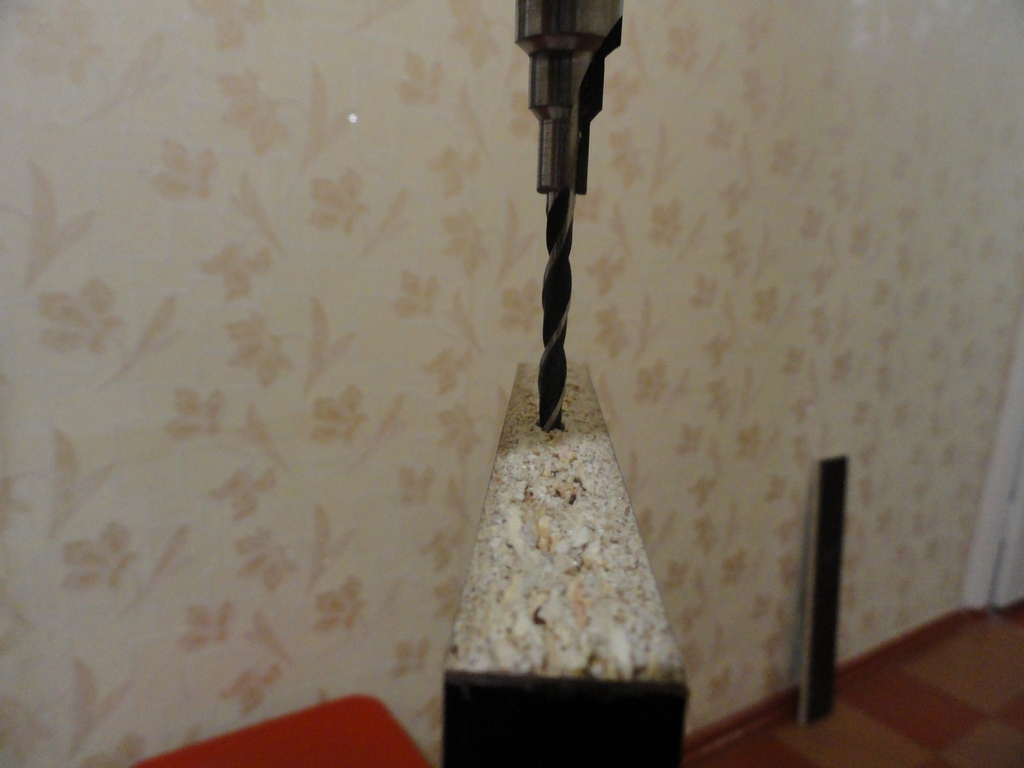
Drilling in two parts at the same time
We fix the product tightly (in a vice) and drill. This is the most accurate way, and a noticeable saving of time during work.
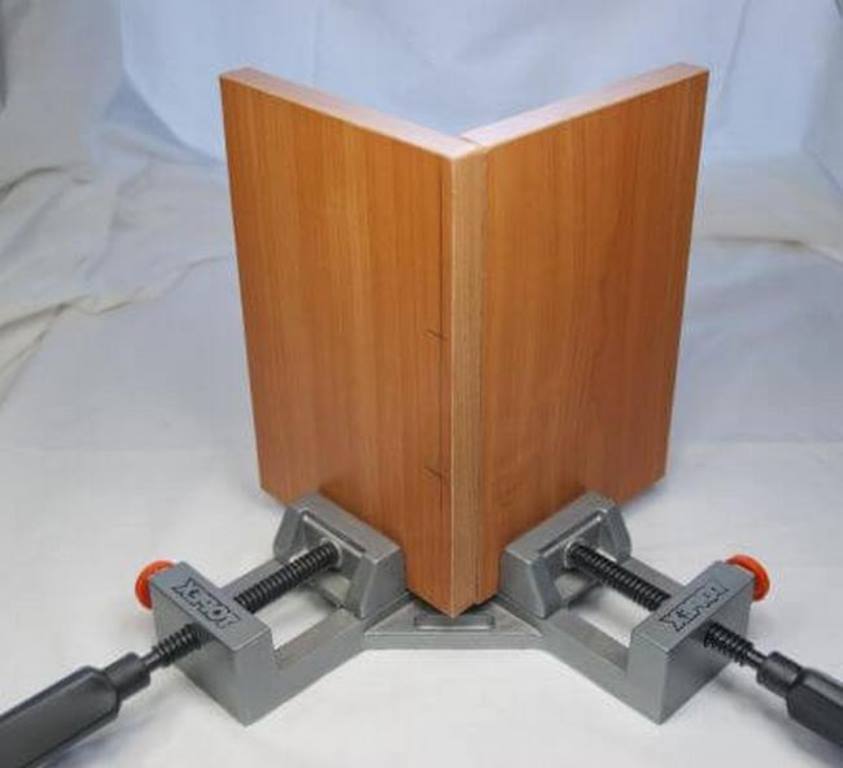
Choosing the right drill
How do you choose the perfect drill bit for the job?
- Always be sure to fit the right part.
- When buying, you need to pay attention to the material (what kind of steel).
- Do not be too lazy to read reviews about the manufacturer. The quality of work depends on this.
- Pay special attention to price. A quality product cannot cost "a penny".
If a master has been working in the field of furniture production for a long time, practical experience itself will tell you which product to buy.
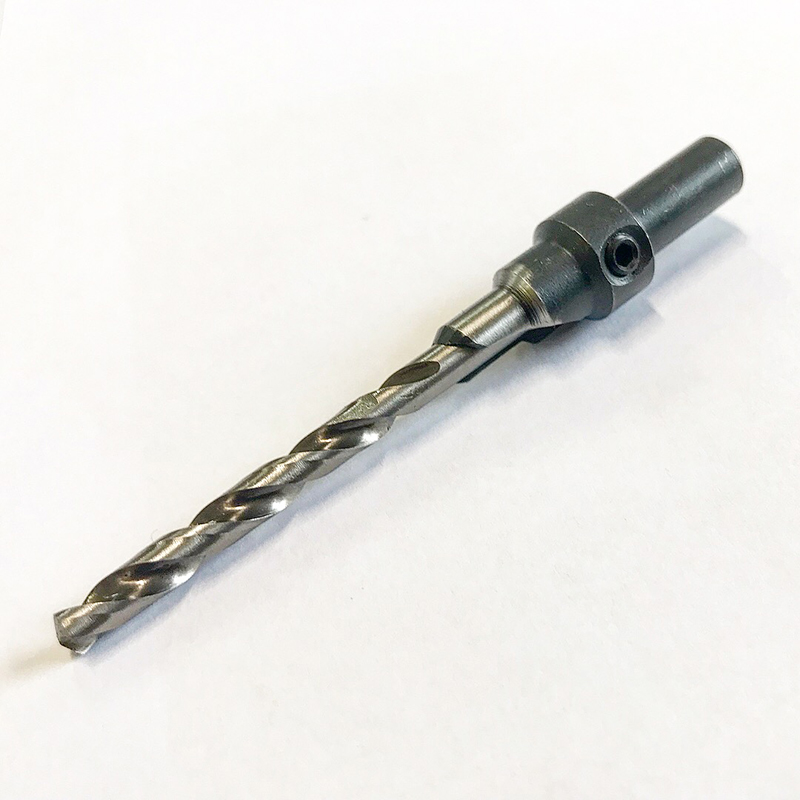
Additional Information. There are several secrets when choosing: the smaller the roughness, the better (feather), the dimensions of the cone (the part under the head) must be identical to the landing segment, the support part for countersink forty-five degrees and the measured transition, etc.
Confirmat is a popular product today, especially for working with furniture samples. When assembling various items, it is recommended to use quality equipment. With a little patience, any item after a few practice sessions will be assembled pretty quickly.
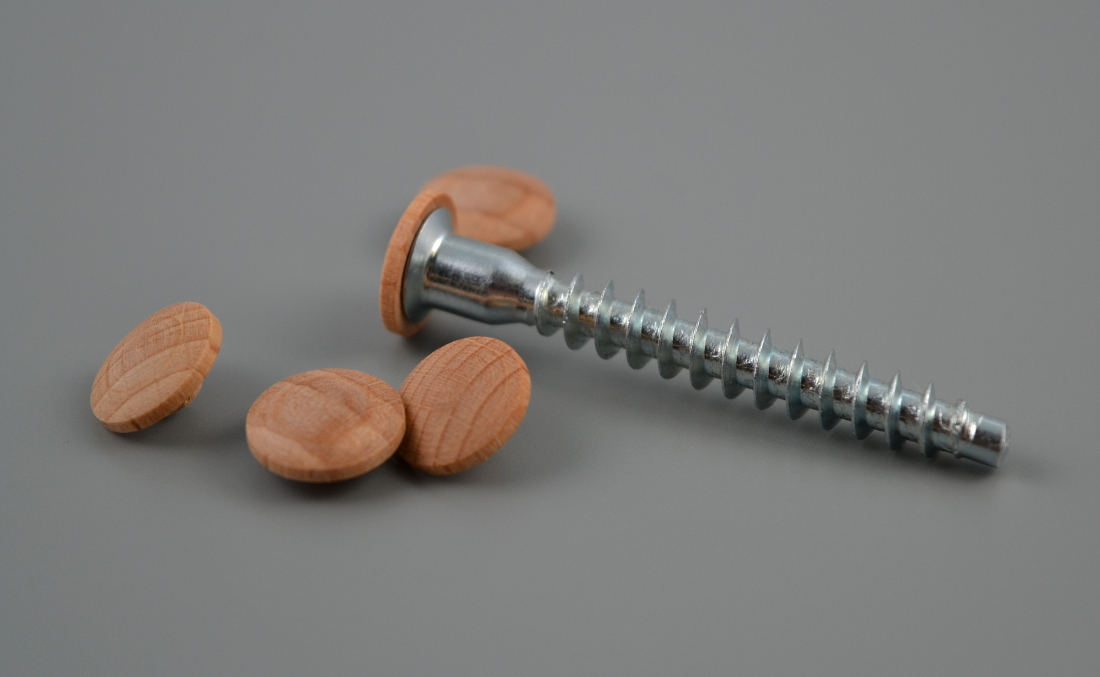
Video: do-it-yourself Euro screw installation
